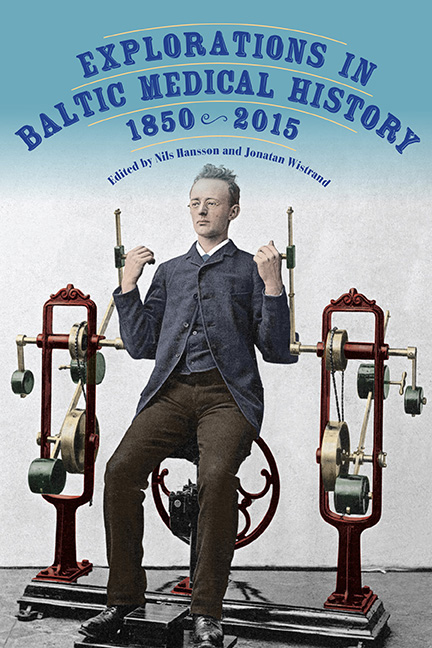7 - Dorpat University in the Late Nineteenth Century as a Transit Space for Psychiatric Knowledge: The Example of Emil Kraepelin and His Conceptualization of Melancholia
Published online by Cambridge University Press: 17 April 2021
Summary
An Estonian Peasant
He felt “like a wheel on a wagon that has to roll along submissively.” A “melancholic” patient of German psychiatrist Emil Kraepelin (1856–1926) made this statement, and Kraepelin quoted it in several editions of his powerful textbook on psychiatry. The patient, referred to as a “simple farmer” and an example of melancholia simplex, found his way into the text during Kraepelin's time in Dorpat (Tartu). Later editions called him an “Estonian peasant” and used his case history as an example of melancholy as a disease related to old age. In the same way that physical regions are first part of one state and then another—a not too far-distant historical experience in the Baltics—melancholy symptom complexes were switched from one category to another in the eight editions of Psychiatry published in Kraepelin's lifetime. As the classification processes evolved throughout the editions, some disease entities earned their sovereignty while others lost it, and some turned into nosological categories while others were dropped, transformed, or absorbed into other categories. Such was the case for age-related melancholy, which dissolved into manicdepressive insanity by the eighth edition in 1913. The “Estonian farmer” also disappeared in this process. He had already lost his identity in the seventh edition of 1904 and was by then recognizable only to initiates by his statement. The author had included him in a downright baroque description of a type that contained the contributions of many individuals: “The patient is ‘discouraged and submissive’ as a wheel on the wagon that just rolls along, internally frozen and petrified, hardly speaks a word, often sits for days, puts his hands in his lap, dully brooding, unable to pull himself together for any action. The slightest accomplishment costs him an outrageous effort.” This characterization did not actually describe the melancholy of advanced age—a category that still existed in this edition— but rather the depressive stages of manic-depressive insanity. Thus, like a wheel on a wagon, the Estonian peasant became a nonparticipating wanderer between Kraepelin's categories.
This chapter examines how Kraepelin's concept of melancholy changed over the time he was working on his psychiatric textbook. Particularly in view of Kraepelin's five-year stay in Dorpat, which represented a contact zone for exchange processes between Western and Eastern Europe during the nineteenth century, the question arises whether and how this location influenced the development of his nosological constructions.
- Type
- Chapter
- Information
- Explorations in Baltic Medical History, 1850–2015 , pp. 168 - 185Publisher: Boydell & BrewerPrint publication year: 2019

